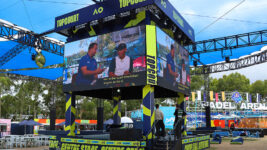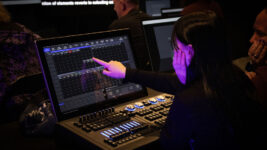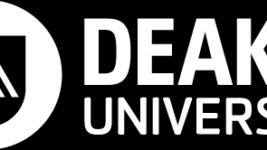LISTEN HERE
6 Jun 2023
A.I. IN THE E.I.
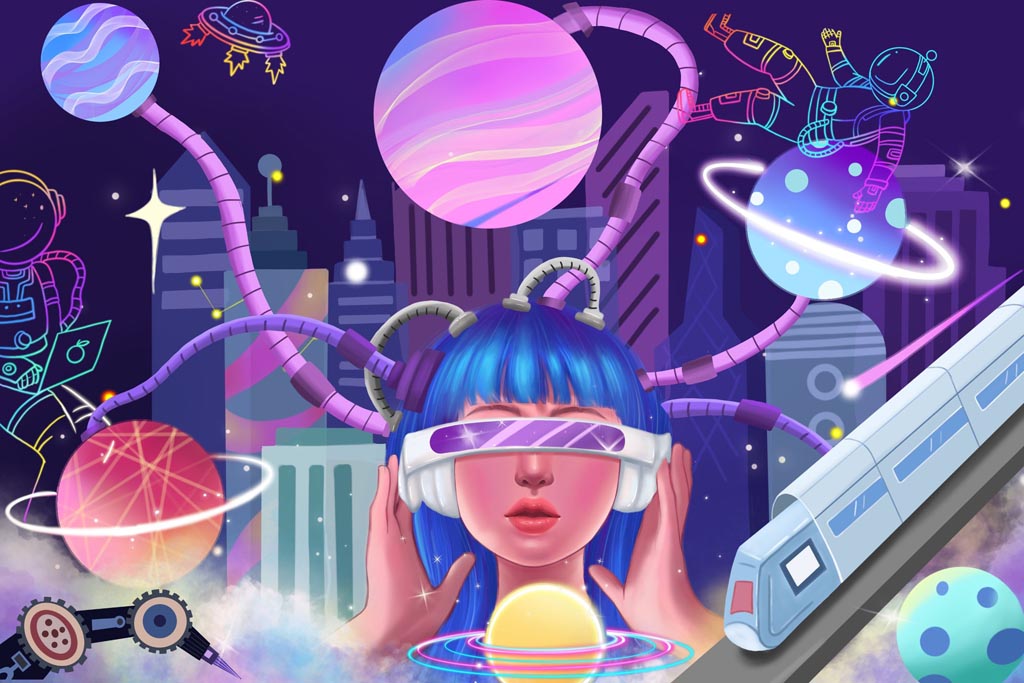
Subscribe to CX E-News
The world is a complex place to navigate, always has been, but more recently the challenges seem to have come thick and fast. In the various entertainment industries where most of us work day-to-day, job insecurity and runaway technological change seems to have produced a perfect storm of instability. Where will all this lead us in the years and decades ahead? Um… well… hmm… sorry, just a sec. Someone’s at the door.
Let’s just kick things off by stating here from the outset that I really have no idea where our various entertainment industries will be a decade from now. I’m not sure I could even predict the shifts of the next few years, to be honest… and that’s troubling.
Will there be new players in the music industry soon? Like for instance, Woolworths A.I., selling its own songs in the supermarket aisle and offering you free tickets to a ‘live’ show featuring its avatar, ‘Freshy,’ when you buy more than $100 of groceries? (If that happens, I’m doing my shopping at Coles). And will Freshy’s songs be produced in the Fresh Music People’s own microphone, and instrument-less studio with vast amount of input from A.I. and only a smattering from human staff? Quite possibly.
Maybe the MCG will be selling out multiple concerts for ‘Bot the Robot – Live on Stage’ by then; a hologram artist who doesn’t actually exist, but whose popularity in 2026 has broken all records for A.A. (Artificial Artist) concert ticket sales.
Maybe immersive audio will be standard in every physical space by then too… or perhaps not. Certainly by 2033, a decade and a lifetime from now, our entertainment preferences might have shifted off axis beyond all recognition.
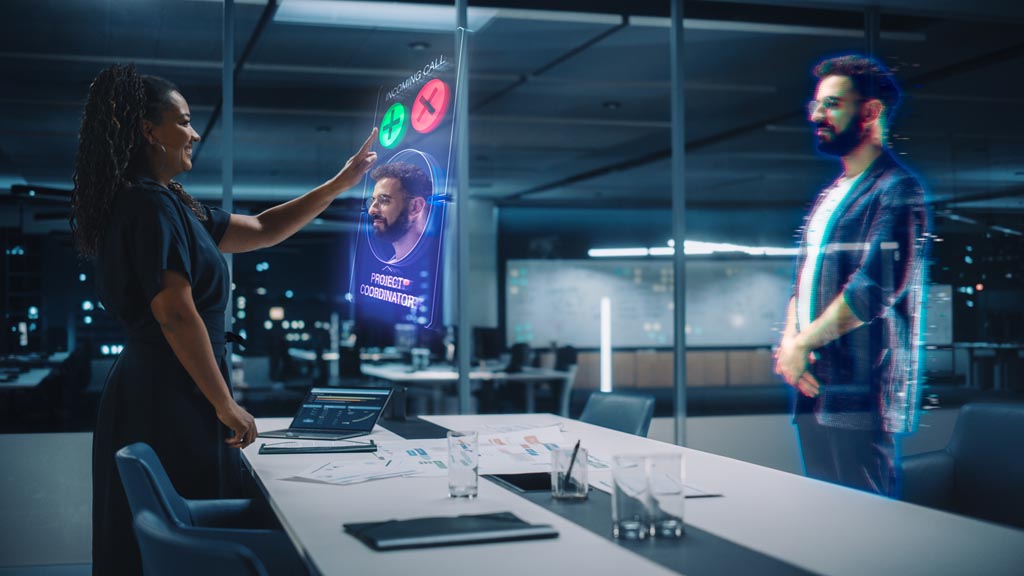
Perhaps gigs in ’33 will be experienced in our own personal Augmented Reality Booths, a space in the house that replaced the study and defunct surround-sound AV room (if you ever had one) way back in 2027. Here you lie weightless in a bath of warm silicon, covered in an absorber that attracts microplastic air pollutants and viruses to its surface, rather than having you breathe that crap in while you’re ‘out.’ Uber and Apple will have cornered both these markets by then, of course: Uber with its Ubabsorber and Apple with its new aesthetically pleasing: iNeverleavethehouse.
Or maybe not… both those companies may be long gone by then anyway, and plastic too, with any luck.
Perhaps my personal (arguably naïve) vision of the future will prevail; that humans will remain attracted to other talented, creative people rather than a computer-generated avatar, and choose to be entertained by others of the flesh and blood variety, live on stage or via their favourite replay format. A future without artists is something I just can’t (or perhaps simply refuse to) imagine.
BUT WAIT, THE FUTURE’S ALREADY HERE!
The problem I see with predicting the future of our various entertainment industries is not that it’s foolhardy, but that for the most part, it’s not the future we’re even discussing, but rather the present!
Most visions for the future that many of us see as ‘possibly becoming a reality a decade from now’ have, in fact, already happened!
Let’s take A.I. for example. Anyone who thinks this is something that we need to ‘get ready for’ or ‘gear up to embrace’ hasn’t been paying attention in class. It’s already here folks, and it’s decided to stay!
If that challenges you; if you feel like a moratorium should be placed on the idea while you take the time to wrap your head around it, you’re not alone, but unfortunately, it won’t make any difference. Like the industrial revolution, nuclear weapons, and social media before it, the A.I. revolution has been thrust upon us.
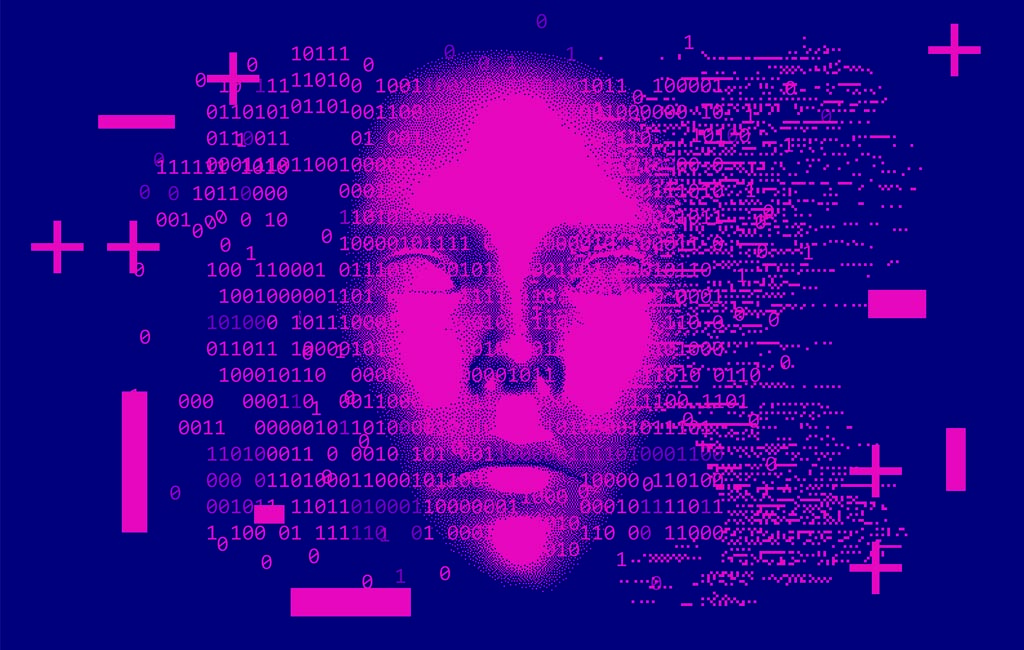
Within 12 months, at the outside, it will have become a significant player in everything we produce, stage, plan for, or record. It will contribute to brainstorming sessions and design work, suggest new products, build them for you, write all your advertising material, tune PAs, run down feedback problems, design the lighting palette for a theatre piece based on the script, write and arrange your lyrics and music, suggest backing vocal melodies and sing most of them for you, mix and master everything, and hopefully hand you a coffee as you walk through the office door. Why you would still be going to the office, however, is anyone’s guess, since A.I. will apparently be doing all the tasks for you.
A.I. has become the gorilla who rented the spare room in your house without asking, he’s here now and we just have to find ways of making him feel welcome so he doesn’t decide to turn on us while we’re asleep.
But I’ve got to stop this line of thinking right here… I don’t think I can stand another second of it.
If you’re anything like me, you’ve had a gutful by now of people projecting a dystopian image of the future; a world in which no-one bothers to learn anything, create anything or develop a human skill anymore because, in the future, A.I. will apparently do all the thinking, designing and grunt work for you.
What I’d like to think instead, if I may, is that we, as human beings, are still in charge of our own future; it hasn’t been written for us quite yet by some amoral learning algorithm that intends to do away with us in the next few years.
I’d like to offer some thoughts instead of what I’d like our industry to do in the years ahead to make the jobs of us creative types easier, so that we can spend more time tapping into our human spirit, expressing it in new and inspiring ways… robots be damned!
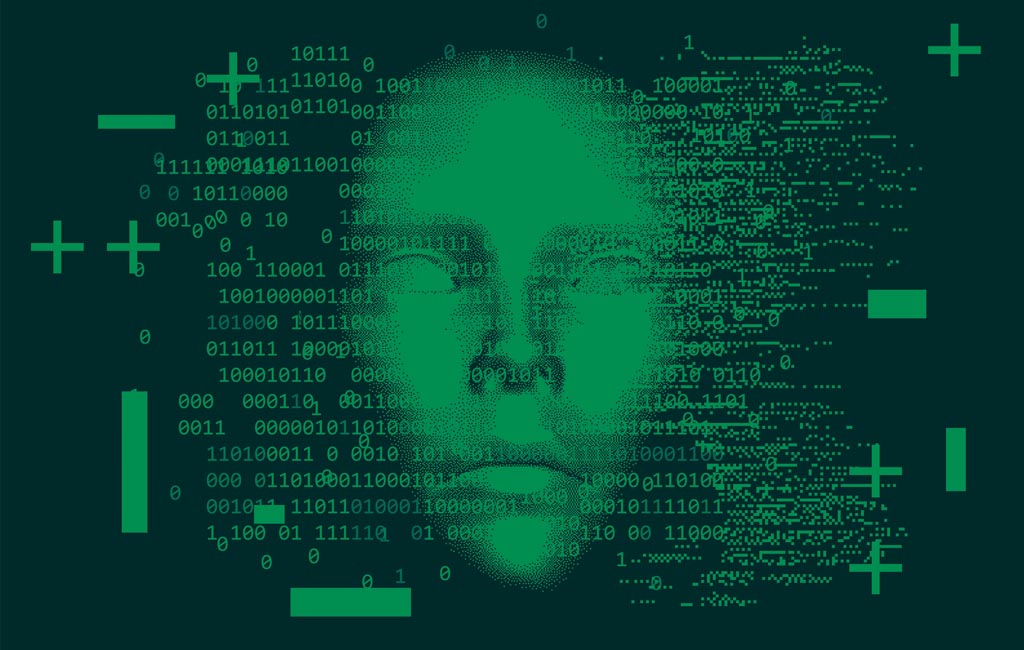
A HUMAN PERSPECTIVE
The hard reality might simply be that for engineers and producers in the music and entertainment industry, things will change radically. Particularly jobs involving ‘screwdriver work’, recording, studio and live mixing, mastering and post-production work in general, these roles will become more that of a curator, aesthete and designer. They will be squarely based around your ‘human input’ (unsurprisingly), your capacity for deciding what you like or don’t like when presented with 10 variations on a theme, rather than having to build these themes yourself.
The next generation of ‘technical’ roles will be more about knowing how to prompt technology to offer you solutions and then choosing between them, rather than knowing how to set a compressor correctly for a snare drum or set up the cleanest gain structure for a vocal.
What will separate one individual from others, what will define ‘your sound’ as it were, will be your aesthetic choices, likes and dislikes, not your capacity for advanced knob twiddling.
There will be upsides and downsides to this of course, but perhaps being liberated to make creative choices with a clear head will do us all the world of good.
But will we still have jobs as a result of all of this ‘advancement’, all this freedom to provide your exclusively human creative input? Not sure, but I’m doubtful.
One thing is clear though: in the future, software companies will really need to step up their game and (ironically) turn their thinking around a full 180 degrees. They’ve had an outrageously charmed run for decades now, using everyone as a guinea pig for their own designs (and failings), providing almost no feedback about technical problems when they arise and leaving human operators, who are busy trying to be creative, to solve them with almost literally no feedback. This attitude to end-users has to stop.
Perhaps for the next few years, rather than getting A.I. to crash headlong into the entertainment industry and take over the roles of humans, software developers should concentrate on making software that repairs itself and learns to work for the human ‘curator,’ rather than treating us all like lackies.
Software needs to be able to interact with users in ways it never has before. It needs to be able to find technical solutions to its own software problems, not assume that the operator has the time or capacity to be able to run down problems on the program’s behalf. I, for one, am entirely sick of it.
And acoustic design needs to be brought into the 21st century too. The days of everything being half-arsed in venues, studios and post-production houses need to end. Venues seem almost incapable still in 2023 of providing a space where performers can play comfortably on stage, and audiences can enjoy high quality sound reproduction that leaves them wanting more. It should be at the forefront of future thinking, especially for architects and designers and venue operators. It must no longer be something considered after a building is built, or when the budget is already spent.
But I’m out of space now folks, and my A.I. avatar is suggesting that I’ve added too many jokes and not enough detail in this article.
It has given my article a score of 78% but suggests a rewrite that would bump that figure up to 100% in 0.48 of a second. But I’m resisting the temptation…
For now.
Into the future we go
Subscribe
Published monthly since 1991, our famous AV industry magazine is free for download or pay for print. Subscribers also receive CX News, our free weekly email with the latest industry news and jobs.


